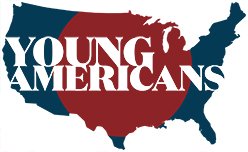 North Carolina has long been a battleground state, and one hotly contested issue is the debate over public education. North Carolina has continuously ranked in the lowest percentile for teacher pay and per-pupil spending, and progress to reverse these issues remains to be seen. Using a combination of 21 different metrics, Wallet Hub recently measured the Best and Worst States for Teachers, and ranked North Carolina 45th in the country. Their report ranked North Carolina as the following:
North Carolina has long been a battleground state, and one hotly contested issue is the debate over public education. North Carolina has continuously ranked in the lowest percentile for teacher pay and per-pupil spending, and progress to reverse these issues remains to be seen. Using a combination of 21 different metrics, Wallet Hub recently measured the Best and Worst States for Teachers, and ranked North Carolina 45th in the country. Their report ranked North Carolina as the following:
▪ Average starting salary for teachers (adjusted for cost of living) – 36th
▪ Average annual salary for teachers (adjusted for cost of living) – 34th
▪ Quality of school system – 13th
▪ Pupil-teacher ratio – 34th
▪ Public-school spending per student – 43rd
▪ Teachers’ income growth potential – 38th
▪ Ten-year change in teacher salaries – 46th
▪ Teacher safety – 43rd
So why is this?
James Hogan, a former North Carolina public school teacher who is now a writer and a fundraiser at Davidson College cites budget cuts as the main culprit. In a 2013 blogpost, he stated, “I am no fan of hyperbole, but I mean it when I say this: North Carolina is waging war against public education.”
In 2012, Republicans gained house majority of the Tar Heel State, and their first task was to enact new spending habits that would clean up the multi-billion-dollar deficit the state had incurred. In order to do so, they reduced unemployment benefits, laid off thousands of teachers and reduced the public education budget by nearly half a billion dollars. Republicans were quick to note that the cuts would yield fiscal growth. And they did. A $445 million surplus was reached the following year, but when compared to the state’s $21 billion budget, the 2 percent increase did not seem worth it to many. Thanks to the teachers who lost their jobs, assistant teachers forced to pick up a second job to make ends meet and the many schools with physical infrastructure in desperate need of repair, Education Week labeled North Carolina “the most backwards legislature in America,” in 2013.
In the years that followed, North Carolina Republicans were able to yield a $500 to $600 million surplus, and in doing so reduced their overall pupil spending from $8,955 to $8,940. The $15 decrease in spending per student decreased the quality and number of textbooks and extra-curricular activity equipment and reduced the cost of building infrastructure materials.
So what is being done now?
In 2016, Roy Cooper was sworn in as governor of North Carolina, and a large portion of his platform was reforming the entire public education system. In due time he plans to raise the average public school teacher’s salary to the national average, which currently is $9,594 more than what North Carolina is paying out. He also aims to reward teachers who hold more experience and education with a higher salary, and to prioritize support for low-preforming schools by maximizing federal dollars and reduce the issue of over-testing which emphasizes to teachers that a final grade is more important than the learning process.
Mark Jewell, president of the N.C. Association of Educators stated in a 2017 interview with the The News & Observer, “The General Assembly is making a clear decision to invest in corporate tax breaks rather than in public education, which is having an impact on our ability to recruit high-quality teachers in our profession.” And he added, “We should give our students the schools they deserve by prioritizing classrooms, not corporate boardrooms. Not only should we be making the critical investments in our educators but also giving them the resources required to help our students be successful.”

